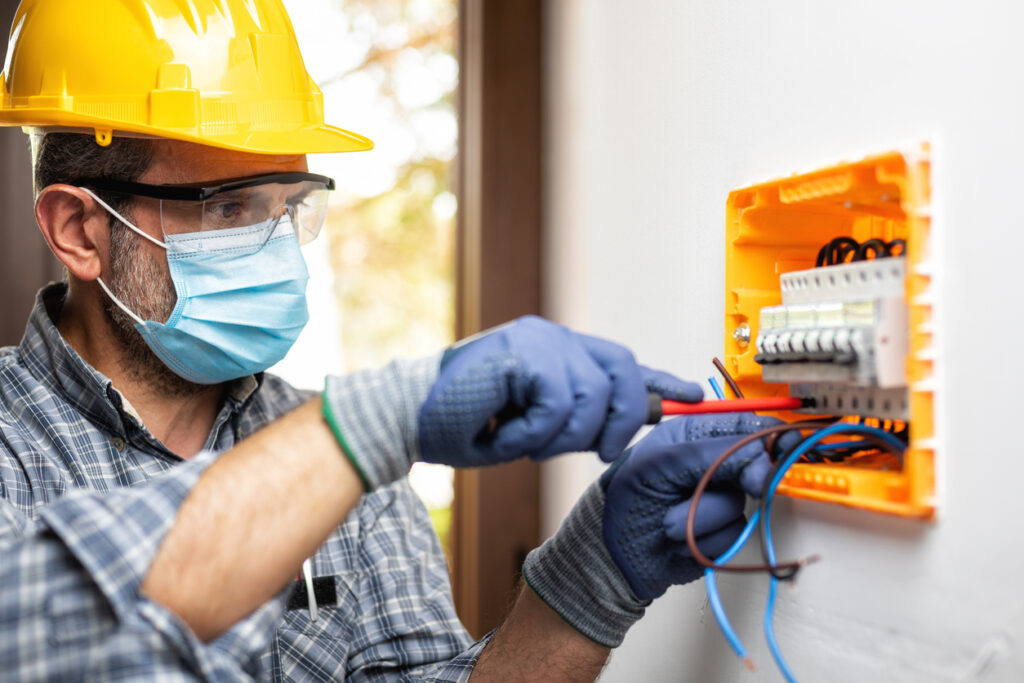Power surges can be a major inconvenience, causing frequently tripped breakers that disrupt your daily activities and potentially damage your electrical appliances and devices. Understanding the warning signs of power surges and taking proactive measures to deal with them can help protect your home and ensure a more stable electrical system. This article will explore some common signs of power surges and suggest effective management.
Tripped Breakers
A tripped breaker is one of the most noticeable signs of a power surge. Breakers are designed to trip and interrupt the flow of electricity when there is an overload or a short circuit. The frequent tripping of breakers, especially without any apparent reason, should raise concerns about power surges.
Flickering Lights and Dimming Electronics
Another warning sign of power surges is the presence of flickering lights or dimming electronics. A surge can cause fluctuations in the electrical current, resulting in lights that flicker or devices that momentarily lose power. If you notice this happening frequently, it may indicate an underlying issue with power surges.
Burnt or Discolored Outlets
Power surges can generate heat, leading to burnt or discolored outlets. If you notice scorch marks, discoloration, or a burning smell around your outlets, it’s crucial to investigate further. Faulty wiring or power surges can cause these issues and should be addressed promptly to prevent electrical hazards or more significant damage.
Damaged or Malfunctioning Electronics
Power surges can wreak havoc on your electronic devices. If you consistently experience damaged or malfunctioning appliances, computers, or other electronics, it could result from power surges. Sudden spikes in voltage can overload sensitive electronic components and cause permanent damage. It’s wise to invest in surge protectors to safeguard your valuable equipment.
Unexplained Appliance Failures
If your appliances unexpectedly fail or stop working without any apparent reason, power surges could be to blame. Large electrical appliances, such as refrigerators or air conditioners, are particularly vulnerable to power surges. If you notice a pattern of unexplained appliance failures, consider consulting an electrician to assess the situation and provide suitable solutions.
Thunderstorms and Power Surges
Power surges often occur during thunderstorms due to lightning strikes or disruptions in the power grid. If you live in an area prone to severe weather conditions, taking precautions is essential. Unplug sensitive electronics, or use surge protectors to minimize the risk of damage during thunderstorms. Consider installing a whole-house surge protection system to safeguard your entire electrical system.
Consult an Electrician
If you’re experiencing frequently tripped breakers or suspect power surges in your home, it’s advisable to consult a licensed electrician. They can thoroughly inspect your electrical system, identify the root cause of the power surges, and recommend appropriate solutions. A professional electrician will ensure your electrical system is safe, secure, and well-protected against future power surges.
Frequent tripped breakers can be indicative of power surges, which can pose risks to your electrical system and connected devices. Recognizing the warning signs of power surges, such as tripped breakers, flickering lights, burnt outlets, damaged electronics, and unexplained appliance failures, is crucial for taking proactive measures to mitigate the risks. Contact Chamberlain in Jonesboro, AR for professional surge protection services.



